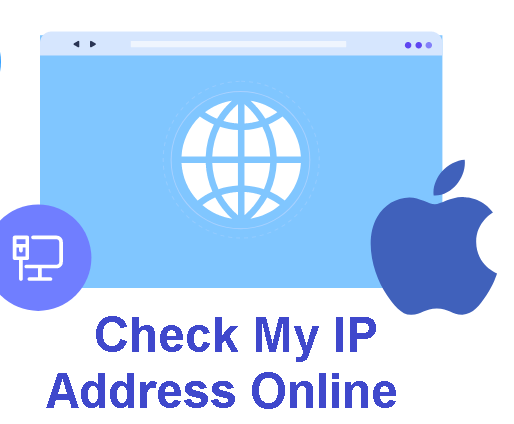

| Your IP | 3.147.86.123 |
| City | - |
| Region | - |
| Country | unknown |
| Country Code | Not available |
| ISP | - |
| Latitude | Not available |
| Longitude | Not available |
An Internet Protocol address, or IP address, is a number given to every device on a computer network that uses the Internet Protocol to talk. This includes computers, phones, routers, and other gadgets that can connect to the Internet.
IP addresses are used to find objects on the Internet and talk to them. They are made up of four groups of numbers divided by periods and can look like this: 192.168.0.1. Each set of numbers is a bit or byte, which can have a value between 0 and 255.

IP names come in two forms: IPv4 and IPv6. IPv4 addresses are the most popular. They have 32 bits, which means there can be about 4.3 billion different ones. IPv6 names, on the other hand, are made up of 128 bits and can have almost an infinite number of different ones.
A private IP address is an IP address that is used on a private network. This means the IP address can't be reached straight from the Internet. Only devices on the same private network can reach it.
The network administrator gives out private IP numbers, which are used to find devices on the network. These are the private IP address groups that are used most often:
10.0.0.0 to 10.255.255.255 (10.0.0.0/8)
172.16.0.0 to 172.31.255.255 (172.16.0.0/12)
192.168.0.0 to 192.168.255.255 (192.168.0.0/16)
The Internet Assigned Numbers Authority (IANA) has set aside these IP address groups for private networks. This means they can't be used by anyone else on the Internet. This keeps private and public IP names from getting in the way of each other.
Private IP addresses are often used in home and small office networks, as well as in bigger corporate networks, so that devices can talk to each other and share resources like printers and files.
Domain Name System is what DNS stands for. It is a method that turns domain names, like www.example.com, into IP addresses, like 192.0.2.1, that computer can understand.
When you type a URL into your web browser, it requests a DNS server to find the IP address that goes with that domain name. The DNS server then gives the computer the IP address it uses to connect to the website's web server.
DNS is a distributed system, meaning many servers worldwide work together to provide DNS results. When a DNS server gets a request it can't handle, it sends the request to a different DNS server that can handle it better. This process continues until the request is answered and the IP address is returned to the person who requested the first place.
DNS also allows other types of records, such as MX records for mail servers, TXT records for adding more information to a domain name, and more. DNS is an important part of the Internet, and all devices that connect to it use it.
A proxy is a server between a client device and another computer, usually on the Internet. The goal of a proxy is to give the client device a layer of protection and separation.
When a client device asks a server for a resource through a proxy, the proxy server sends the request on behalf of the client and gets the answerback. The answer is then sent back to the client by the proxy. This process hides the client's IP address from the server, which can be useful for privacy and security reasons.
Proxies can also be used to:
1. Cache resources are often used to reduce network traffic and improve speed.
2. Use a traffic filter to stop people from visiting certain websites or materials.
3. Log traffic so that it can be checked or problems can be fixed.
There are different kinds of proxies, such as:
1. HTTP proxies redirect HTTP data, usually used to browse the web.
2. SOCKS proxies are used to proxy any communication, even traffic that isn't HTTP.
Transparent proxies are a type of proxy that doesn't need the client device to be set up in any way.
Reverse proxies send requests from various backend servers to a single server.
Individuals, organizations, and internet service providers can use proxies for things like improving security and privacy, speeding up performance, and filtering material.
IPv4 and IPv6 are two different Internet Protocol (IP) forms used to identify network devices. The main things that make IPv4 and IPv6 different are:
1. Address Space: IPv4 addresses are 32 bits long, so about 4.3 billion unique numbers can be used. This number may seem big, but as the number of devices that can link to the Internet has grown, the number of IPv4 addresses has become limited. IPv6 addresses, on the other hand, are made up of 128 bits, which means there are almost no limits to the number of unique numbers that can be used.
2. Format of an Address: An IPv4 address looks like 192.168.0.1, four sets of numbers divided by periods. IPv6 addresses look like this: 2001:0db8:85a3:0000:0000:8a2e:0370:7334. A colon separates each group of four hexadecimal numbers.
3. Auto-configuration: IPv6 has an automatic address setup built in, while IPv4 usually uses DHCP (Dynamic Host Configuration Protocol) to give devices addresses.
4. Security: IPv6 has built-in support for IPsec, a security protocol offering authentication and encryption features. IPsec is an extra part of IPv4.
5. Routing: IPv6 makes routing easier by reducing the size of routing tables and making it easier to send data where it needs to go.